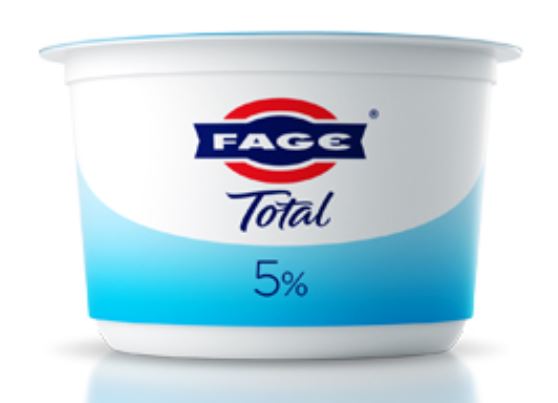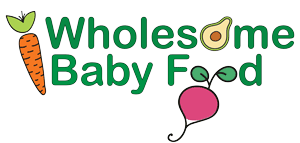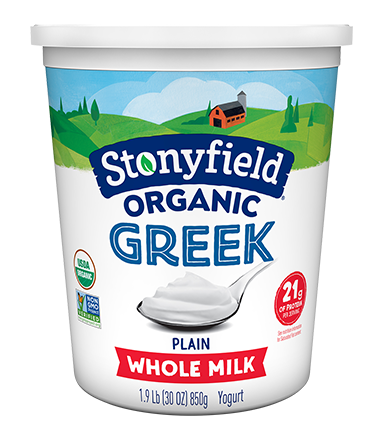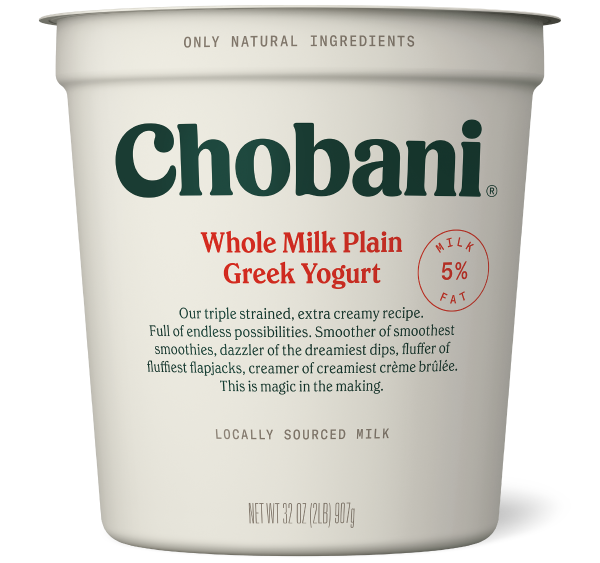
Greek yogurt has fast become a favorite of babies, toddlers, kids and adults alike. Many people enjoy the extra creaminess and texture of Greek yogurt as compared to regular yogurt. Along with the super creamy texture, Greek yogurt has a nice tang, is less sweet because it contains less natural sugars and, it has more protein than regular yogurt too! Parents are sometimes confused about if babies can eat Greek yogurt or do they have to stick to feeding their babies “regular” yogurt?
Yes! Babies can eat Greek Yogurt.
The good news is yes, babies can eat Greek yogurt. There are a few things to keep in mind when feeding your baby yogurt however.
When can Babies Eat Greek Yogurt?
Many pediatricians say that yogurt makes a great first food at 6 months . The age for introducing babies to yogurt does vary however, with introducing yogurt to babies around 8 months old being the most often recommended age.
Babies Should Have Full Fat Yogurt Only – Read those labels!
|
|
|
 |
Babies shouldn’t have low-fat or no-fat dairy products. Lucky babies, they need the fat and will benefit not only from the fat itself, but from the extra-creaminess that comes along with it! Pediatricians typically recommend that toddlers be switched to low-fat dairy products around the age of 24 months (2 yrs).
Full fat Greek yogurt is difficult to find and you may have to read a lot of labels. Chobani is one delicious brand that makes a whole milk, full fat Greek yogurt that contains 5% milk fat. Fage Total and Stonyfield Organic also make a plain full fat Greek yogurt that comes in at 5%. You will find Greek yogurt in 4% milk-fat form is readily available this is fine to offer to your little one.
Choose Greek Yogurt With No Added Flavors for Babies (and big kids too!)
Just like feeding baby regular yogurt, make it plain yogurt. You’ll cut down on the sugar and you’ll be able to make your own flavors, just for baby’s preferences and developing palate! Try mixing in blueberry, banana, apple or pear puree; you can even add veggies!
An Additional Benefit and Bonus of Greek Yogurt for Babies!
Greek yogurt is strained more than its regular yogurt counterpart. This means that the whey (protein that those with dairy allergies may react to) and the lactose (many are lactose intolerant) content is far lower in Greek Yogurt. Your baby may find the Greek yogurt easier to digest.
Greek yogurt can contain double the protein of regular yogurt as well. It also has half the sugar (lactose) as regular yogurt. Double the protein and half the sugar, Greek Yogurt is a wonderful choice for babies!
Greek and regular yogurt is also great for your child’s digestive tract. It is said that babies who eat yogurt regularly don’t have diarrhea as often as babies who do not eat yogurt. Yogurt contains many forms of good live bacteria that helps to the bad bacteria from forming in your baby’s digestive tract.
A Note About Introducing Dairy and Yogurt to Babies before Age One
Babies can be introduced to yogurt before the age of one year. Yogurt does not come under the “No Dairy Until Age One” rule. This “rule” is one that many pediatricians neglect to fully explain!
Yogurt is the exception to the the “No Dairy Until Age One” rule because:
- Your baby is not at risk of formula/breast milk being replaced by Yogurt or Cheese.
Doctors worry that you may stop formula and/or breastfeeding and use milk as the replacement before baby is one. However, most pediatricians neglect to explain that there is a difference between baby drinking milk and eating yogurt and/or cheese.
- Lactose is broken down with the culturing of the yogurt or cheese and milk proteins are either semi-removed or limited. The culturing process makes yogurt and cheese easier to digest. Many people with lactose intolerance often are be able to eat cheese and/or yogurt without trouble. The same is often true for some people with a milk protein (either to the casein or the whey) allergy.
What do you know about Baby’s Poop? Did you know that you can learn a lot about your baby’s digestive health just from looking at and smelling his poop? Up until the time your baby starts eating solid foods, her poops will be fairly regular (even if she only poops a few times a week) and uniform in appearance, texture, and smell.



